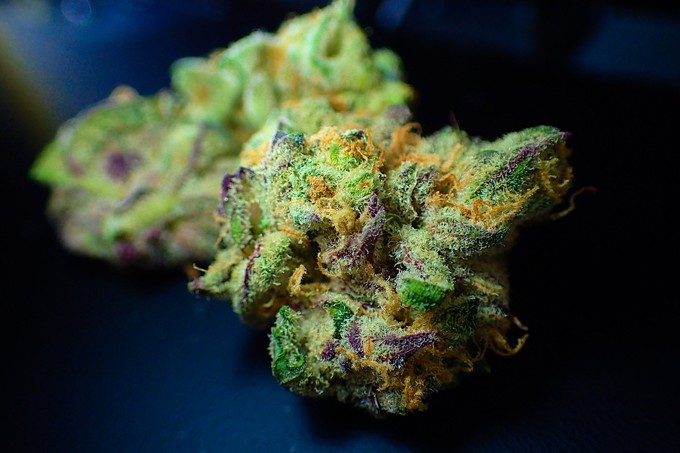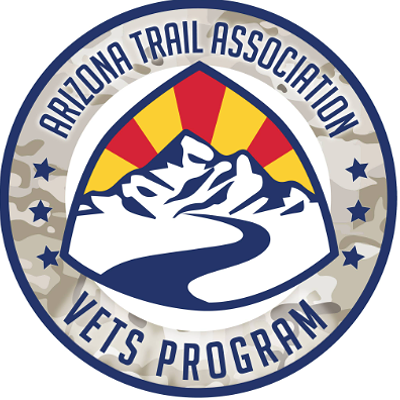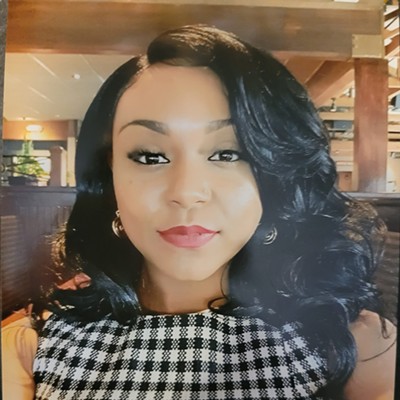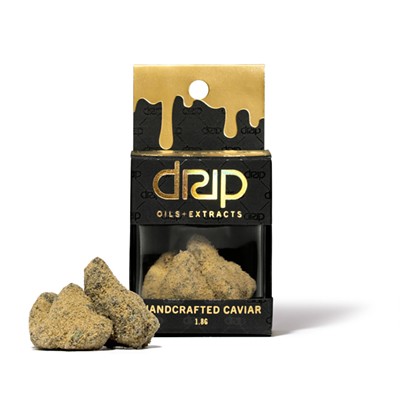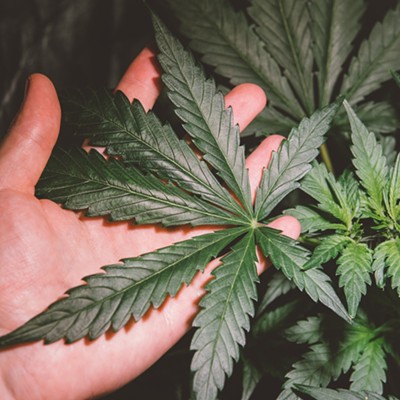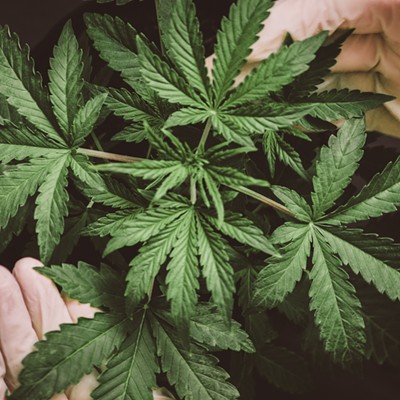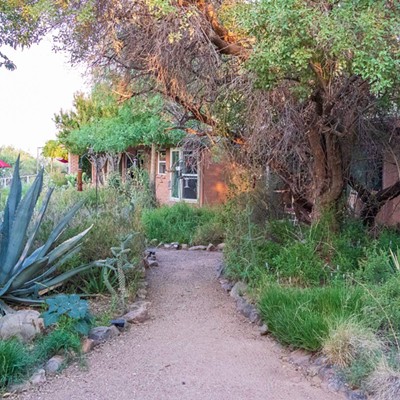The Arizona Department of Health Services held its lottery for the new social equity licenses earlier this month, but due to an ongoing conversation within City Council, there is a possibility none of those businesses could wind up in Tucson.
The April 8 random drawing was at best anti-climactic as far as spectacle goes, but as a result of the brief computerized drama in a room filled with members of the media, political dignitaries and anxious applicants, the clock started ticking for 26 individuals who have a few short months to secure funding and a location, and who must be open within 18 months.
ADHS accepted more than 1,500 applications the first two weeks of December 2021 for the adult-use, recreational licenses purported to be worth tens of millions of dollars.
Nearly one-third of the applications came via “mentorship programs” set up by three of the largest operators in the state: Mohave Cannabis Co., an Eastern Arizona company; Copperstate Farms (Your Bright Horizon) in Snowflake, and Mint Cannabis, founded in 2012 as Brightroot Inc. in Guadalupe, Arizona.
Of the licenses doled out, those multi-state operators (MSOs) were the big winners, with Mohave getting five, Copperstate three, and Mint pulling up the rear with two.
Many of the other applicants were either individuals who ponied up the $4,000 non-refundable application fee or those registered as limited liability companies in the Phoenix or Tucson areas.
While the licenses do not belong to the MSOs, should the individual winners—who must maintain a 51% share of the license—fail to make sufficient progress due to financial or zoning problems, they would have to either forfeit the license or find someone with sufficient cash laying around to purchase them.
What happens next is open for speculation, as nothing prevents applicants from transferring their majority ownership to existing corporate dispensaries.
Where Will They Open?
In April 2021, the City of Tucson amended its zoning codes to open up more potential locations for weed-related businesses in the city.
In order to give council time to provide feedback to ADHS on the social equity process, Mayor Regina Romero proposed a moratorium on recreational licenses, which the city adopted with the zoning updates.
While the moratorium does not include medical marijuana licenses (which are covered under the Arizona Medical Marijuana Act of 2010 and are allowed to become “dual-licenses”), Prop 207 (which legalized recreational weed in the state in 2020) does not afford the social equity or recreational licenses similar protections.
In order to address that issue, on March 22, the Tucson City Council voted to begin creating a special exception zoning process for the social equity licenses.
That process could take several months even as the clock is ticking for the newly minted licensees.
“Ultimately, the direction on this has come from Mayor and Council,” Tucson’s principal planner Dan Bursuck wrote via email. “We are hoping to have the first stakeholder meeting in May. This will be a code amendment, and generally those take around six months to complete.”
At the council study session, Romero criticized ADHS for not taking the council’s suggestions into account when it finalized the rules last December.
“The process that ADHS put together really allowed for corporate dispensaries to take advantage of the process,” she said. “I just want to make sure that we initiate the process and have a fair process in front of us.”
Romero had several other issues with the program as it is currently designed, believing it “falls short of promoting the social equity issue,” with restrictive eligibility criteria as well as the appearance of “a sizable influence by three of the largest corporate operators in the state” that would allow applicants to transfer or sell their licenses rather than get into the business.
“I like the idea of using special exceptions ... because a special exception process would allow us to provide feedback and concerns,” she said. “It allows the public to give input and feedback, as well as (allowing) mayor and council to provide additional direction to get the results we want as a community.”
Tucson is one of several jurisdictions considering a special exception procedure, according to Romero, citing Phoenix, Tempe and Flagstaff as other municipalities considering the action.
Councilmembers Steve Kozachik (Ward 6) and Paul Cunningham (Ward 2) were in favor of special procedures being put in place, with Cunningham going so far as to propose the city hire an ombudsman or “MMJ guru,” to help shepherd social equity applicants through the process.
“If we want those businesses to occupy commercial space in Tucson, if we want to be the area that’s producing product that’s being moved around the state, then we need to have an internal advocate for those folks,” Cunningham said. “That’s really where we put our money where our mouth is.”
Kozachik recognized the barriers between the license holders and opening a business, from federal law that prohibits them from getting operating capital from banks to processes they might not be familiar with. He also acknowledged there were very few avenues to council available to guide the process, as state law precludes local jurisdictions from creating more restrictive rules than those outlined in Prop 207.
Ultimately, as far as Tucson’s control over the process goes, the state holds most of the cards.
“If we are truly concerned about the barriers to entry for the people these people the social equity licenses are intended for, we have to take a local position,” he said. “The only tool we really have is zoning codes. We can’t usurp state law and say we’re going to adopt our own licensing processes locally.”
Kozachik also thinks the cash aspect of the marijuana industry—due to its Schedule I classification as a narcotic with no recognized medical benefits federally—opens the door for under-the-table dealings between the richest people in the industry and people wholly unprepared for dealing with municipal governments.
“This is an extremely cash-heavy industry necessarily because of the federal laws,” he said. “Going forward, these equity licenses are going to wind up with the same people that have the money, the cash, to invest in this industry right now if we don’t take a local position.”
Missing the boat
But there are people in the cannabis industry who think Tucson is missing out on increasing the cannabis footprint in the city and artificially restricting competition.
According to Demitri Downing, who has a long professional and personal relationship with Cunningham as council aide from 2010-2012, and is founder of the Marijuana Industry Trade Association (MITA) in Arizona, says Tucson officials should have seen this coming last year when they eased restrictions on locations for cannabis-related businesses throughout the city.
“A well-intended City Council that is supposed to be championing social equity tripped over themselves and created a situation where they might actually be hurting social equity,” he said. “If you’re a planner for these social equity applicants who’ve won a license, you do not plan to come to Tucson because you’re not allowed in Tucson.”
Arizona NORML Director of Politics Jon Udell said he thinks cities like Tucson and Flagstaff, which recently started its own discussions about special exemption procedures, are actually ahead of the zoning curve to some extent.
“Tucson is moving forward with zoning for adult use only, whereas most other jurisdictions just aren’t even talking about it right now,” he said. “Nowhere else in the state has zoning that’s suitable for adult-use only right now and Tucson is at least talking about it, so they’re actually further along than most other places.”
He added that some rural communities, particularly those that received the 13 “infill” rural licenses last year, have addressed dual-license zoning issues, but large urban municipalities have not because there has been no need up to now.
“The rural licenses weren’t going to Maricopa County, so there was never a need to do zoning for adult-use only until social equity happened,” he said.
Udell expects zoning discussions to be a big part of the cannabis conversation going forward.
Downing thinks the decisions of Tucson leaders won’t matter because creating new rules will come too late for it to make any difference in the final outcome.
“This is another good example of how public policymakers, government officials, just don’t know what they’re doing,” Downing said. “It’s not because they’re uneducated or dumb, it’s because these are very complex scenarios that have never occurred before. The patients and consumers want choices and competition. Why doesn’t the city?”
Cunningham said that take oversimplifies the issue and agrees with Udell that Tucson is ahead of the curve. There are many aspects of bringing in new businesses that must be considered, he said, including environmental impact and water usage for ancillary businesses, such as grow facilities.
“The notion that the City of Tucson is behind in expediting social equity licensures is a myth,” Cunningham stated in a recent text to the Weedly. “We have made an earnest effort to make this process as client-friendly as possible. I think the special exception process for these licensees is a novel and creative idea that will help facilitate this program.”
Piecemeal approach
While the Arizona cannabis industry is stuck with the rules that have been created, both through the passage of Prop 207 and the subsequent legislation and court rulings that have defined enforcement of the laws, legalization is playing out in an economic atmosphere that is decidedly capitalistic in nature.
Additionally, since it is illegal to move product across state lines, each operator must create its own “vertically integrated” system from growing cannabis to processing and moving it within the state without the support of the banking industry, which is limited in the types of services it can provide to an industry that is still ostensibly illegal.
“The market is going to do what the market does,” Arizona Dispensary Association Executive Director Sam Richard said. “Not a single one of the current operators in the market owns a majority stake in any of these licenses, but if they choose to purchase a majority stake, that is the choice of the social equity applicant who was awarded the license.”
Richard concedes, though, that a lot of perceptions and problems could be fixed if cannabis were federally legal and descheduled so that everyone is working from the same rulebook.
“We’re trying to dig the foundation of a 30-story building with a melon scooper,” he said. “These are huge systemic issues that we’re trying to battle and we’re trying to go at it in a piecemeal manner, but I’m proud that Arizona is at least leading the conversation.”

